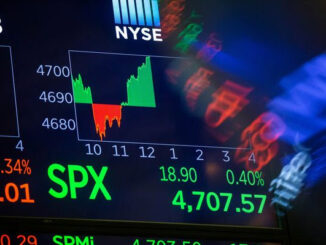
On Thursday, in his Autumn Statement to Parliament, Chancellor of the Exchequer Jeremy Hunt said Britain is now officially in recession, and he unveiled a new economic plan designed to help the island nation, weather the fiscal “storm.”
Recessions are particularly problematic for governments. Defined as two consecutive quarters of negative economic growth, recessions reduce the amount of money received through tax revenue, while at the same time the public’s finances deteriorate as well, as business revenues fall, salaries drop or are eliminated entirely, and unemployment increases.
In his statement, the Chancellor highlighted the difficult decisions which needed to be made, including implementing roughly £30 billion ($35 billion) in spending reductions and £25 billion ($29 billion) in tax increases. Among the initiatives were also a freeze on income tax thresholds for six years, as well as lowering the top rate of income tax to £125,000 ($147,000).
He also introduced an expanded windfall tax for the energy industry of 35%, increased from the current 25% as part of the new budget plan.
The plan also includes a 10% increase in state pensions, benefits, and tax credits, as well as raising the National Living Wage above £9.50 ($11.21) an hour for those aged 23 and older.
Hunt told MPs, “The Office for Budget Responsibility (OBR) judge that the UK, like other countries, is now in recession. It says higher energy prices explain the majority of the downward revision in cumulative growth since March.”
He went on, “The OBR confirm that because of our plans, the recession is shallower, and inflation is reduced. Unemployment is also lower with about 70,000 jobs protected as a result of our decisions today.”
According to the Office for Budget Responsibility, the economy in Britain is still estimated to grow 4.2%, before falling 1.4% next year, before rising 1.3%, 2.6%, and 2.7% respectively, for each of the next three years. It estimated the inflation rate will come in at 9.1% this year, and 7.4% in 2023. It also expects the unemployment rate to increase from the current 3.6% to 4.9% in 2024, before dropping to 4.1%.
The Daily Financial Trends



